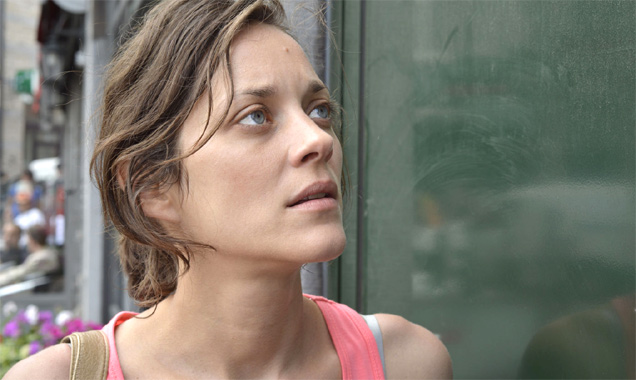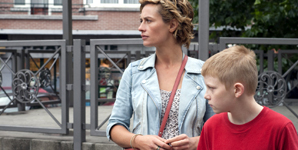Two Days, One Night Review
The Dardenne brothers consistently make compelling dramas that win awards, from Rosetta (1999) to The Kid With a Bike (2011), and this drama might be their best yet. It takes a simple premise and twists it into a comment on the changing structure of global society, all while never losing the intensely personal perspective. It's never a statement film, but it says much more than movies that shout their messages loudly.

The central character is Sandra (Marion Cotillard), who has just returned to work after an emotional breakdown. Then she's left stunned when her boss (Baptiste Sornin) calls a vote on a Friday afternoon, and employees choose to make Sandra redundant so they can keep their €1,000 bonuses. Her friend Juliette (Catherine Salee) gets the boss to agree to re-run the vote on Monday by secret ballot, which gives Sandra the weekend to sway people to save her job, which she desperately needs to keep her family afloat. Her husband Manu (Fabrizio Rongione) accompanies her on this degrading task, begging her colleagues one by one to give up their cash for her. And it's almost more than she can bear. For every thrilling surge of compassion she feels, there's another worker who coldly refuses her pleas.
Jean-Pierre and Luc Dardenne based the film on a real scenario, which is awful to imagine. Indeed, most of the film's characters express horror at the unfairness of the situation, but Sandra and Manu just have to get on with things in a matter-of-fact way that grounds the film in earthy emotion and, thankfully, wry humour. Cotillard gives another fully invested performances as a woman barely keeping a grip on herself, let alone finding the reserves needed to take care of her kids. She hides her true feelings from everyone as long as she can, and her main flaw seems to be an inability to see that she has a husband and colleagues who genuinely care about her. She's not facing this seemingly hopeless situation alone.
Continue reading: Two Days, One Night Review









![Luke De-Sciscio talks to us about having the courage to be yourself, forgiving that which is outside of one's control and following whims [EXCLUSIVE] Luke De-Sciscio talks to us about having the courage to be yourself, forgiving that which is outside of one's control and following whims [EXCLUSIVE]](https://images.contactmusic.com/images/home/homepage/luke-de-sciscio-abof-a.jpg)
